Give With One Hand, Take With The Other: Why The US And Its Gulf Allies Are Failing In The Fight Against ISIS
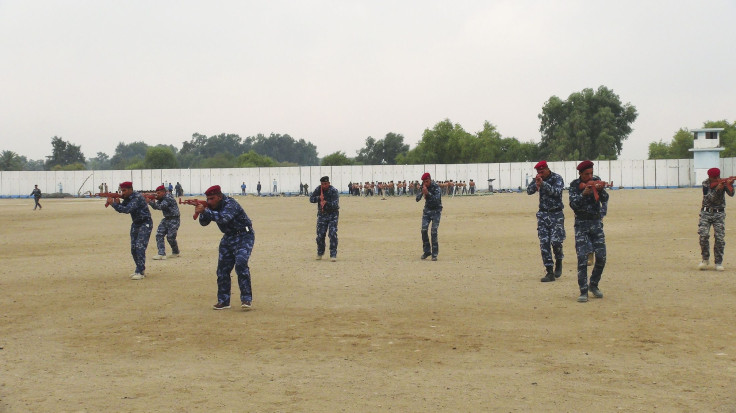
In the days following November’s brutal attacks in Paris by Islamic State group militants, Riyadh’s skyscrapers blazed blue, white and red in a public display of solidarity with France. The message from the Saudi capital was clear: “We support you, people of France, against terrorism.”
Leaders from across the Gulf were quick to condemn the assaults that left 130 dead and scores injured. The UAE president, Sheikh Khalifa bin Zayed, sent a telegram to French President François Hollande, pledging his support “to face terrorism and eliminate it.” The leaders of Dubai, Kuwait and Abu Dhabi followed suit.
The Gulf states are key members of the U.S.-led coalition against the group known as ISIS. Bahrain and UAE were among the first countries to take part in anti-ISIS airstrikes and, in his first visit to Washington in September, the Saudi king told President Obama that the Kingdom would play a major role in Syria. But that alliance is under threat as wealthy donors across the Gulf are lining the pockets of the terrorists their leaders have professed to fight.
The battle for Ramadi, in Iraq’s western Anbar province, is illustrative of this duplicity. The city’s Sunni officials, in a series of interviews conducted over a period of five months, told International Business Times that Sunni tribal leaders, funded by Gulf businessmen, helped ISIS take over the provincial capital in May. Seven months later, ISIS controls an area stretching from the Syrian border, east of Iraq's second-largest city, Mosul, to the outskirts of Baghdad.
U.S. military advisors are training local Sunni forces to recapture the strategic city, but those efforts have so far failed to expel the group, which is one of the best equipped and wealthiest in the region. The tribal leaders provide ISIS with intelligence, cash and weapons that help it to stave off U.S.-backed Iraqi military forces and ensure the group retains the upper hand in battle. Many leaders have formally pledged allegiance to the militant group.
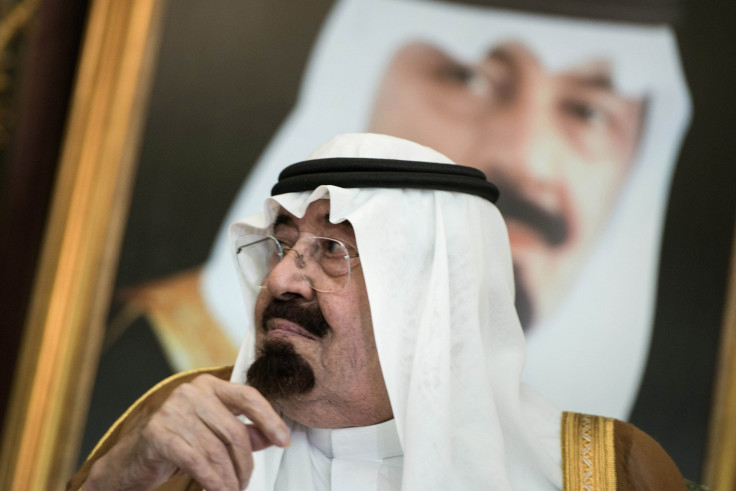
A combination of money and willful blindness has ensured that Sunni businessmen in the Gulf, who are funding ISIS through Sunni tribesmen intermediaries, go almost unchallenged, Eissa al-Issawi, the head of Fallujah's local council, told IBT.
Lucrative trading ties with the terrorist group mean that few are willing to stand against them. Mowaffak al-Rubaie, Iraq’s former national security advisor under former Prime Minister Nouri al-Maliki, said a number of the government offices in Anbar province’s other cities -- Haditha, Hit and Fallujah -- deal directly with ISIS and transfer money to the militants.
Tribal leaders in the region take up to $1,000 from civilians who want to leave ISIS-controlled territory and hand it back to the group, Sheikh Naim al-Gaoud, a tribal leader in Hit, said. Sunni tribal leaders not only give weapons to ISIS but also send money donated by prominent Iraqi Sunni businessmen such as Khamis al-Khanjar and Imad Mohammadi, who have previously given financial support to anti-government demonstrators.
It’s a testament to the strength and wealth of the ISIS network not only in Iraq, but throughout the Middle East, that the group is able to draw on such wide support. Analysts say it underscores the direct connection between ISIS strongholds that are fueled by a robust local system of taxation, extortion, oil production and sales, and also through Gulf businessmen and charities. Despite U.S. efforts to blacklist ISIS financiers, those funds are connected to the global banking system because Gulf states are not enforcing the laws that are supposed to crack down on citizens financing terror groups -- and the U.S. has so far not convinced them to do otherwise.
Historical Ties with the Gulf
Gulf businessmen have a long history of funding the tribes in Anbar, as well as Sunni militant groups around the world, by sending them donations through intermediaries, usually charities, in support of a religious ideology that mirrors their own. Citizens of Saudi, along with Qatar, stand accused of financing militant groups in Syria such as Jabhat al-Nusra, an al Qaeda offshoot.
Saudi Arabia has begun to criminalize financers of terrorism, while others, especially Qatar and Kuwait, have a long way to go, analysts say. Gulf countries have arrested financiers of ISIS, but those arrests have rarely led to prosecutions and trials.
“All of the Gulf states have good laws on the books by now,” said Lori Plotkin Boghardt, an expert on ISIS financing from the Washington Institute for Near East Policy, a think tank in Washington. “But each makes decisions about whether they should jail extremist financiers because they’re a terrorist threat, or whether it’s more savvy to allow extremist financing because it helps certain foreign policy objectives like defeating Assad, or because it’s politically expedient not to crack down on certain citizens funding these jihadi groups.”
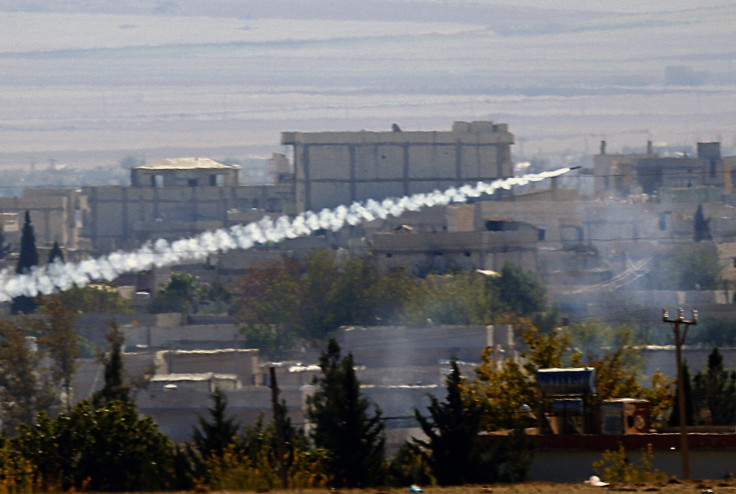
Qatar and Kuwait remain problematic jurisdictions in regard to terrorist financing and although Saudi Arabia has made some strides in cracking down domestically, “radical deep-pocket donors in Saudi Arabia still wishing to transfer money to Syria often do so through Kuwait,” Matthew Levitt, an expert on ISIS financing from the Washington Institute on Near East Policy, said in his briefing to the House Armed Services Committee last year.
“Most of the Gulf states have put new laws in place or revised old laws or taken new measures to crack down on terrorist financing. But it’s a matter of implementation,” said Plotkin Boghardt. “Actual implementation of these laws falls along a continuum in the Gulf.”
Kuwait did not criminalize terrorist financing until 2013, after ISIS had already made plans to seize territory in Syria. The new law allows for immediate freezing of terrorist assets and created a Financial Intelligence Unit -- an office established in government bureaucracies across the globe as an epicenter for reports and investigations of terrorist financing -- similar to the law Qatar passed in 2010. But both countries have not fully implemented the law .
The State Department recently reported that Doha's general enforcement and implementation of its money-laundering and terrorist financing law was "lacking" and marked by "significant gaps." Emir of Qatar Sheikh Tamim bin Hamad Al-Thani, in his first interview last year, denied claims that people in his country were supporting terrorists.
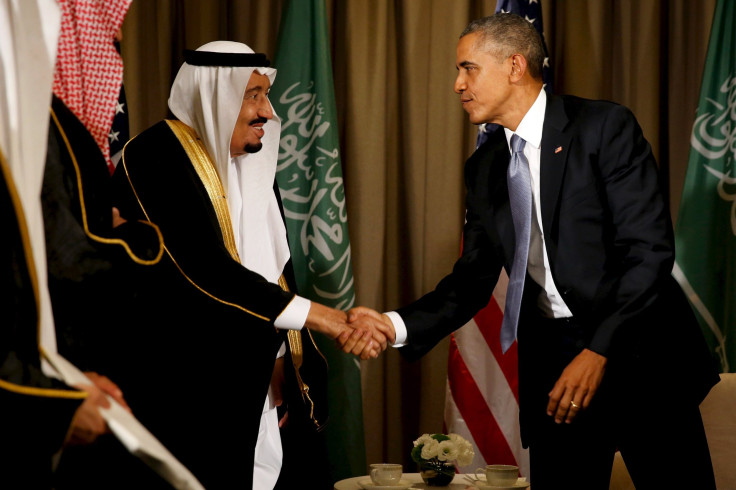
Kuwait has yet to bring any terrorist financiers to trial. In a report published in April, the Middle East and North Africa Financial Action Task Force, the intergovernmental body developing and promoting policies to combat money laundering and terrorist financing, Kuwait was still working on correcting its previous ratings. In its 2011 report it was “partially compliant” and “noncompliant” on a total of 38 recommendations.
Saudi Arabia has arrested hundreds of alleged ISIS supporters, but most who go to trial have no financial ties to the group, and ISIS continues to enjoy popular support among a large swath of the Gulf’s population who follow Wahhabism, a brand of puritanical Islam that ISIS also has its roots in.
“It’s very hard to convince Sunnis in the Gulf that [ISIS] is a bad thing,” said Tom Sanderson, an expert on terrorism financing at the Center for Strategic and International Studies, a think tank in Washington.
Failed U.S. Efforts To Pressure Gulf Allies
The U.S. has fared little better at convincing its Gulf State allies to crack down on individuals who fund terror. A leaked State Department document from 2009 published on WikiLeaks shows that the U.S. has struggled to persuade Gulf States to crack down on financiers.
“While the Kingdom of Saudi Arabia (KSA) takes seriously the threat of terrorism within Saudi Arabia, it has been an ongoing challenge to persuade Saudi officials to treat terrorist financing emanating from Saudi Arabia as a strategic priority,” the document said. “Donors in Saudi Arabia constitute the most significant source of funding to Sunni terrorist groups worldwide. Continued senior-level USG engagement is needed to build on initial efforts and encourage the Saudi government to take more steps to stem the flow of funds from Saudi Arabia-based sources to terrorists and extremists worldwide."
The document also said that Kuwait was more concerned with addressing financiers of terrorism domestically than internationally and that Qatar “has adopted a largely passive approach to cooperating with the U.S. against terrorist financing.”
Robert Jordan, the U.S. ambassador to Saudi Arabia during the beginning of the Iraq War, told IBT that when he was stationed in Riyadh, the Saudis had “little way of oversight” in tracking al Qaeda financiers. “They decided to handle [tracking terrorists’ finances] through the Ministry of Interior, but they didn’t have anyone in it that knew much about it. It was not very successful,” he said.
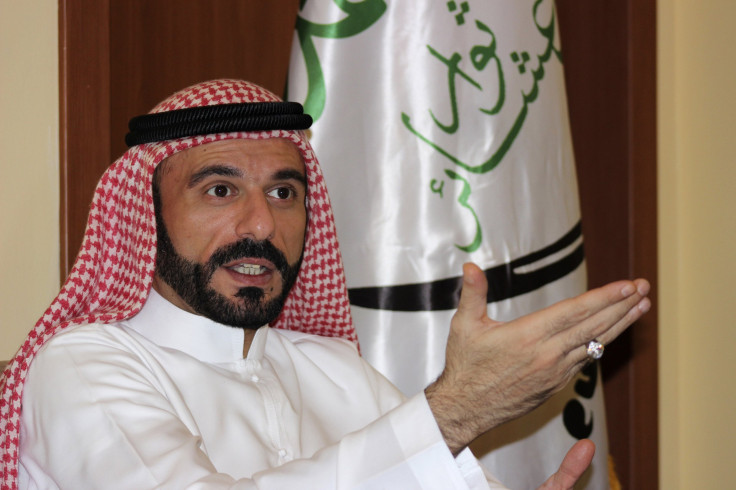
The Saudis eventually shut down a large charity known for funneling money to terrorists, Al Haramain, and stopped collecting money in mosques -- but even those two small steps took years to accomplish. At one point, Jordan said, the then secretary of treasury, Paul O’Neil, arrived in Riyadh with a list of names of al Qaeda financiers that the U.S. wanted Saudi officials to arrest and take to trial. But American officials stationed in Saudi persuaded O’Neil not to present the list to officials in fear that the list would lead to wrongful convictions.
“I said, ‘Are you sure you have the right name on these lists? You better think twice because you can’t falsely accuse these people,’” Jordan said of his conversation with O’Neil. “There could have been 30,000 Abdullah Muhammad’s. It is almost impossible to match up a particular name with an ID card and someone on the ground.” The list was never revisited during Jordan’s time in office, he said.
Few Gulf countries are actively working to cut ISIS off from the global banking system, despite their membership in the Counter ISIL Finance Group, an international coalition lead by the U.S., Saudi Arabia and Italy that focuses on targeting ISIS oil revenues. Those countries are also members of the inter-governmental Financial Action Task Force, which sets standards for combating money laundering.
Non-Existent Paper Trail
U.S. efforts to cut off ISIS’ finances have been limited by the challenges of tracking the group’s financial movements. A senior U.S. treasury official told IBT that the group’s paper trail is almost non-existent, just as the transactions of al Qaeda, the group it grew out of, are.
The U.S. has sought to make ISIS funds useless outside of the area it controls, sanctioning individuals involved in transactions with the U.S. This year, the treasury sanctioned 30 individuals connected to ISIS and its finances, and froze their assets; last week, the U.S. Office of Foreign Asset Control, the department that monitors illegal transactions, blacklisted a Syrian-Russian businessman for providing money to fund ISIS oil operations.
But a department spokesman told IBT that the group’s success at extracting wealth from the territories it controls -- through taxes, looting and kidnapping for ransom -- makes it difficult to cut off funding from the outside.
In Iraq, the Treasury said it has worked closely with authorities to ensure that 90 bank branches within ISIS-controlled territory are cut off from Iraqi and international financial systems. But, there are some reports from the ground that suggest civilians are being forced to travel outside ISIS territory to access banks and bring the cash back into ISIS land.
The U.S. is also working to stop the ISIS militants in Iraq from acquiring American tender -- there are a number of exchange houses within Iraq that permit the group access to several million dollars. But the U.S. has yet to target ISIS the same way in Syria and a porous border between the two countries allows for easy transfers of weapons and cash.
U.S. officials say their efforts won’t stop the group from getting richer until their Gulf allies, and Turkey, do more to stop the flow of cash, oil and weapons into ISIS-held territory.
“We need the Turks to be doing a lot more. There’s pretty much a consensus that a lot of money and other things are moving across the Turkish border,” Levitt said. “International banks are not allowing their banks in ISIS-controlled areas to send or receive money, [but] the fact that you don’t see massive inflation suggests money is moving in and out.”
Michael Kaplan contributed to this report. Laith al-Ameery reported from Baghdad.
© Copyright IBTimes 2024. All rights reserved.





















